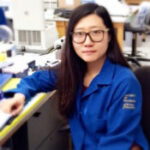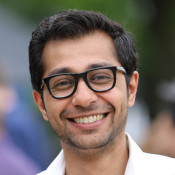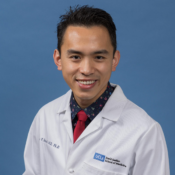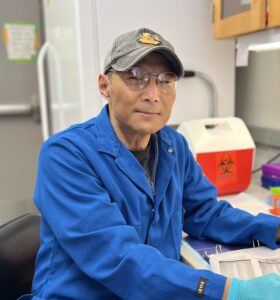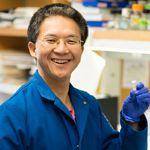 Xiaofeng Gu, M.D., Ph.D.: Project Scientist [Email]
Xiaofeng Gu, M.D., Ph.D.: Project Scientist [Email]
Xiaofeng Gu obtained his M.D. and Ph.D. from Shanghai Medical University where he worked on cytogenetic and molecular genetic abnormalities in childhood leukemia and other hematologic disorders. He joined the Yang lab in 2002 and his research has focused primarily on the pathogenesis of Huntington’s disease in mouse models and the application of BAC-transgenics and other new technologies to generate mouse models of human diseases.
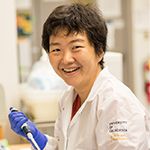 Nan Wang, Ph.D.: Project Scientist [Email]
Nan Wang, Ph.D.: Project Scientist [Email]
Nan Wang received her doctoral degree in Molecular and Biochemical Nutrition from the University of California at Berkeley. Her current research focuses on the pathological cell-cell interactions in Huntington’s disease and determining how mutant huntingtin affects cortical and striatal neuronal function and communication with the goal of identifying therapeutic targets that may normalize cellular miscommunication to help slow the progression of the disease.
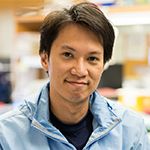 C.Y. Daniel Lee, Ph.D.: Adjunct Assistant Professor [Email]
C.Y. Daniel Lee, Ph.D.: Adjunct Assistant Professor [Email]
Daniel Lee received his bachelor’s and master’s degrees from National Taiwan University. He received his doctoral degree from the Department of Neuroscience at Case Western Reserve University, where he trained in Gary Landreth’s lab and focused on Alzheimer’s disease. His current work is focused on understanding the pathogenesis of HD and identifying the genetic and small molecule modifiers of HD using high-throughput high-content screenings.
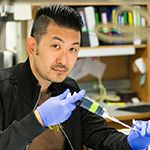 Chang (Chris) Park, Ph.D.: Project Scientist [Email]
Chang (Chris) Park, Ph.D.: Project Scientist [Email]
Chang (Chris) Park recently received his doctoral degree in Neuroscience from the University of California, Los Angeles as a graduate student in the Yang lab. As a project scientist in the lab, he is continuing his research on the genetic and molecular mechanisms underlying the developmental and functional roles of the basal ganglia circuitry in neuropsychiatric disorders and addiction. And yes, he knows how to pipette.
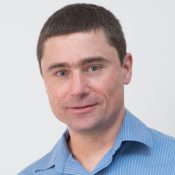 Peter Langfelder, Ph.D.: Programmer/Analyst [Email]
Peter Langfelder, Ph.D.: Programmer/Analyst [Email]
Peter Langfelder received his PhD in physics at Stony Brook University. He came to UCLA as a postdoctoral scholar in the Horvath group where he helped develop methods for systems biological analysis of high-throughput data, including Weighted Gene Co-expression Network Analysis (WGCNA), Dynamic Tree Cut, and others. He continues to develop analysis methods and applies them to Huntington’s disease research.
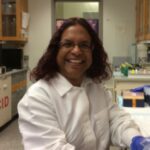 Lalini Ramanathan, Ph.D.: Assistant Project Scientist [Email]
Lalini Ramanathan, Ph.D.: Assistant Project Scientist [Email]
Lalini Ramanathan received her doctoral degree in Biochemistry from the National University of Singapore. She completed her post-doctoral training at Harvard Medical School in the laboratory of Dr. Priyattam Shiromani, where she studied the effects of sleep deprivation on oxidative stress and neurodegeneration. She continued her training at UCLA, working with Dr. Jerry Siegel, pursuing further studies on sleep-related disorders, including sleep apnea and narcolepsy. Her current research focusses on genetic modifiers of Huntington’s disease, with the goal of delaying the onset and progression of the disease.
Linna Deng, Ph.D.: Postdoctoral Scholar [Email]
Linna Deng received her bachelor’s degree in Biology (major, Statistics as minor) and doctoral degrees in Cellular Biology from Peking University, where she studied mitochondrial defects in Huntington’s disease novel mouse models. She worked as a visiting graduate student in the Yang lab from 2015 to 2016 and joined the lab as a postdoctoral researcher in 2019. Her current research focuses on the mechanisms of how genetic modifiers of Huntington’s disease affect pathogenic progression of the disease.
Masood Akram, PharmD, Ph.D.: Postdoctoral Scholar [Email]
Masood Akram received his PharmD from University of Karachi and his PhD in Bioengineering with a focus on Neuroengineering/Computational Neuroscience from George Mason University where he studied the morphology of glia and neurons under the supervision of Dr. Giorgio Ascoli. His current work in Dr. Yang’s lab focuses on developing artificial intelligence inspired computational models, data analysis tools, and studying the pathophysiology and morphological changes in the nervous system cells in different neurodegenerative diseases.
Tien Phat Huynh, MD, PhD: Resident Physician (PGY-4) [Email]
Tien-Phat (Phat) completed the Medical Scientist Training Program (MSTP) at Washington University in St. Louis, where he investigated the role of the apolipoprotein E (ApoE) in the pathogenesis of Alzheimer’s disease under the mentorship of Dr. David Holtzman. He is currently in his final year of residency training in Neurology at UCLA. Phat received the R25 training grant from the NIH, and will be pursuing a combined research-clinical fellowship in neurobehavior and dementia at UCLA. In the Yang lab, Phat will pursue projects that focus on the role of astrocyte dysfunction in the pathogenesis of Alzheimer’s disease, with co-mentorship from Dr. Baljit Khakh.
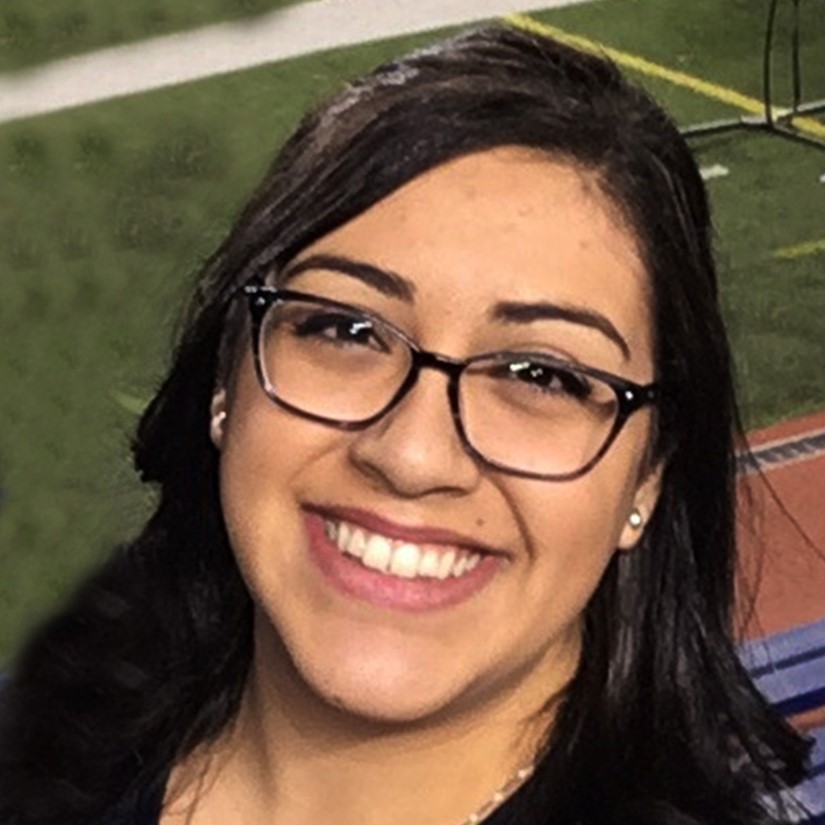 Amberlene De La Rocha: Graduate Student [Email]
Amberlene De La Rocha: Graduate Student [Email]
Amberlene did her undergraduate degree at Duke University where she worked in a neuropharmacology lab to develop neurobehavioral assays to characterize cognition and sociability in zebrafish. She earned her M.S. at the University of Michigan where she studied the signaling pathways underlying the cellular stress response that leads to the pathogenicity of Candida albicans, a common fungal infection in immunocompromised patients. Currently, Amberlene is a PhD student in the Yang lab interested in the role and response of microglia in the pathogenesis of Alzheimer’s disease.
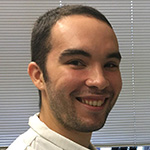 Leonardo Dionisio: Graduate Student [Email]
Leonardo Dionisio: Graduate Student [Email]
Leonardo Dionisio received his undergraduate degree in Biological Sciences at Northwestern University, studying genetic risk factors in a mouse model of autism. Currently, his research focuses on developing a huntingtin-protein interaction network, as well as taking a deeper dive into understanding the pathways behind potential Huntington’s Disease modifiers.
Ming Yan: Programmer/Analyst [Email]
Ming Yan received her MPH degree in Epidemiology at Emory University, now she is pursuing her master’s degree in Healthcare Data Science at University of Southern California. She joined Yang’s lab as a Programmer Data Analyst in June 2022. Her major focus at the lab will be managing neuronal imaging database, developing automated programs to support the 3D neuron reconstruction, performing neuronal shape statistics analysis, exploring machine learning methods for neuronal and disease phenotype classification, maintaining RNA-seq analysis pipelines, etc.
Nianxin Zhong: Staff Research Associate [Email]
Nianxin Zhong graduated from a dental school in China. He have been a dental surgeon and head and neck tumor surgeon for near 20 years. After four years as a visiting scholar at NCI, he joined UCLA in 2005 and worked in several laboratories. Nianxin Zhong’s expertise are in cell culture, stem cells induction, and animal experiments.

Henry Chen: Staff Research Associate [Email]
Henry Chen received his undergraduate degree in Biology (B.S.) and minor in Global Health from the University of California, Los Angeles. As an undergraduate, he studied the effects of per- and polyfluoroalkyl substances (PFAS) on thyroid hormone gene regulation and adverse pregnancy outcomes at Duke University. He joined the Yang lab after graduating and is now working on the pathogenic aspect of Huntington’s disease through BAC-transgenic mice.

